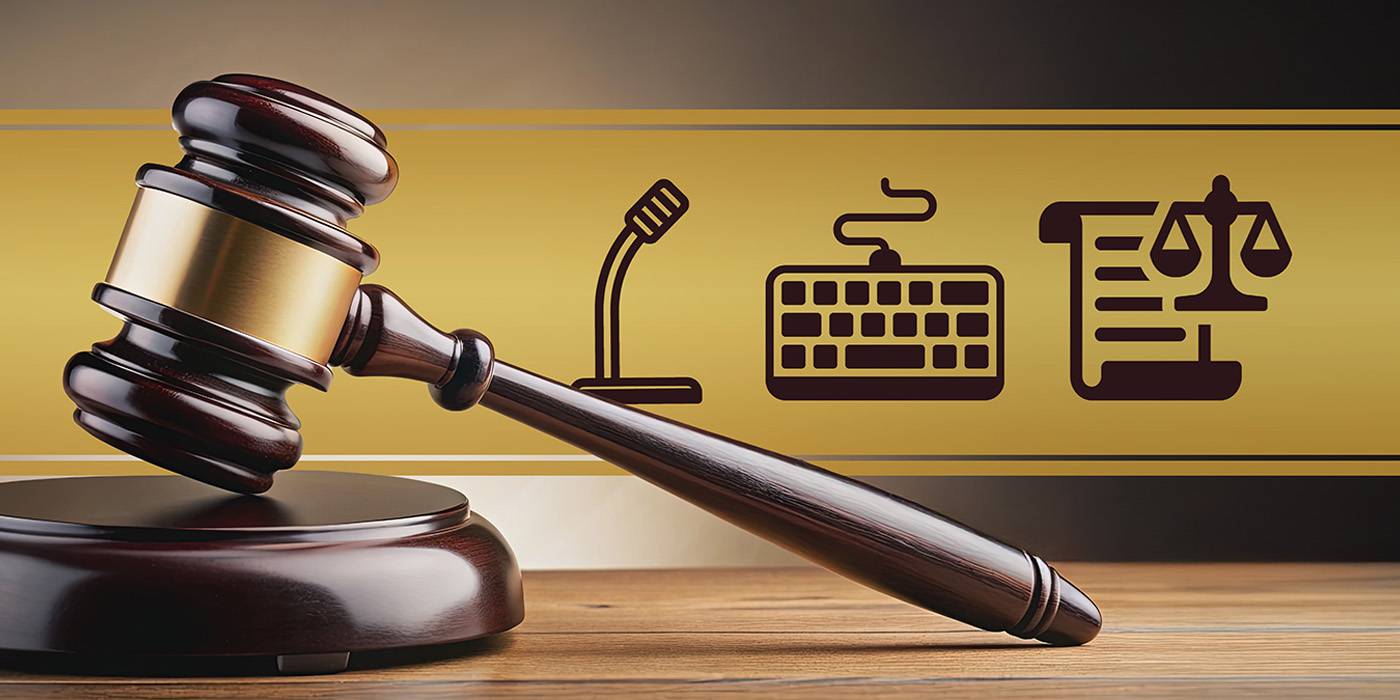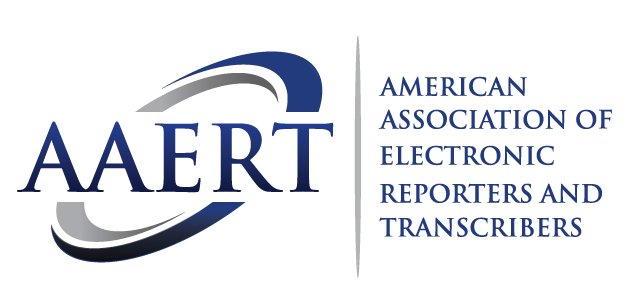Develop the skills you need to become a successful digital reporter and legal transcriptionist and prepare for the AAERT CER and CET exams.
Digital Court Reporter and Legal Transcriber

Become a Digital Court Reporter and Legal Transcriber
This Digital Court Reporting with Legal Transcriptionist training course will provide you with an introduction to the court system, legal procedures, terminology, ethics, professionalism, and confidentiality. During the digital reporting training portion, you will learn how to cover all types of legal proceedings, including how to work with digital reporting software and equipment. There is no hands-on training with digital reporting equipment. During the course's legal transcription training portion, you will learn to format, transcribe, edit, and proofread legal transcripts for correct grammar, punctuation, and word usage. In addition to many exercises, quizzes, and self-graded assignments, you will receive personalized feedback on instructor-graded transcription assignments.
Upon course completion, you will be fully prepared to pass the Certified Electronic Reporter (CER) and Certified Electronic Transcriber (CET) exams offered by the American Association of Electronic Reporters and Transcribers (AAERT). The AAERT certification is the leading credential for courts and businesses throughout the U.S. and is required by various court systems and agencies for employment purposes.
Job Outlook for Court Reporters and Legal Transcribers

As litigation continues to rise nationwide and the technology used to capture testimony evolves, there is a tremendous need for court reporters and legal transcriptionists. These professionals can work in the freelance market for court reporting agencies or transcription companies, or as full-time government employees at a courthouse. There are also some opportunities to work remotely in this field.
The U.S. Bureau of Labor Statistics reports that, on average, about 1,600 openings for court reporters and simultaneous captioners are projected each year by 2033. Most of those openings are expected to result from the need to replace workers who transfer to different occupations or exit the labor force, such as retiring.
According to ZipRecruiter, the average annual salary for a digital court reporter in the U.S. is $67,770 ($33 per hour). Many court reporters work as independent contractors, so their pay depends on the amount of work they can secure. Some digital reporters also work as legal transcriptionists. The average annual salary for a legal transcriptionist in the U.S. is $46,930 ($23 per hour).
Digital Court Reporter and Legal Transcriber FAQs
What is the cost of an AAERT certification?
The AAERT certification exam has a registration fee of $275. Upon passing the certification exam, you need to become a Professional Member of AAERT ($125/year) within 30 days to receive and hold your certification.

Where can I work as a digital reporter?
Digital reporters work remotely or in person, depending on the company they choose to work with and the need within their area. Digital reporters can work throughout the United States on federal cases and with some agencies or as freelancers. Local agencies and/or courthouses may vary in employing digital reporters depending on state legislation.
Where can I work as a legal transcriptionist?
Most legal transcriptionists work remotely; however, there may be some opportunities for in-office/in-courthouse employment, if desired. Legal transcriptionists can work throughout the United States.
What is a digital court reporter?
Digital court reporters play a key role in the legal system by capturing and maintaining a verbatim record of court proceedings. Within the legal industry, digital reporters might also be known as electronic reporters. Some digital court reporters must obtain their notary license if they will be swearing in witnesses. To create an accurate and detailed record of case events, digital court reporters operate digital recording software to record, annotate, and submit court proceedings. Some digital court reporters also create the official transcript of the court proceedings they cover.
What is a legal transcriptionist?
The legal industry relies on legal transcriptionists to transcribe audio recordings of depositions, hearings, trials, and other legal proceedings. They will transcribe, format, proof, and certify official transcripts.
Course Objectives
- Develop the skills you need to become a successful digital reporter and legal transcriber who can work in the field and at home
- Professionalism, ethics, and confidentiality
- Fundamentals of our legal system including Legal, medical, and industry terminology
- Legal, medical, and industry terminology
- Digital reporting hardware and software including practice using digital recording software
- Transcript formatting, focusing on federal court systems
- Be in a position to sit for and pass the AAERT's (American Association of Electronic Reporters and Transcribers) Certified Electronic and Transcriber exams, further broadening your options for employment.
Prerequisites and Requirements
High School Diploma or equivalent and eligible for notary public commissions in your state.
Hardware Requirements:
This course must be taken on a PC device. A Mac OS is not compatible.
Software Requirements:
- PC: Windows 7 or later operating systems.
- Browser: The latest version of Google Chrome or Mozilla Firefox are preferred. Microsoft Edge and Safari are also compatible.
- Adobe Acrobat Reader.
- ExpressScribe software. You will be provided with download instructions upon enrollment.
- Software must be installed and fully operational before the course begins, except for the ExpressScribe software.
- Other: Email capabilities and access to a personal email account.
Instructor
Merritt Gilbert
Merritt Gilbert is a legal professional with over 10 years of industry experience. She is a Certified Electronic Reporter and holds a Certificate of Voice Writing. She graduated with a Bachelor of Science from Florida State University. Natalie Hartsfield Natalie Hartsfield is a court reporter with more than 10 years of experience in the legal field. She has taught court reporting since 2007. Natalie holds an Occupational Associate Degree in Court Reporting from Stenotype Institute.
100% Online | Your Pace | Open Enrollment
This course is 100% online, at your pace, and provides you with all materials you need upon registration. Open enrollment means you can start anytime. Don't wait, start today!
